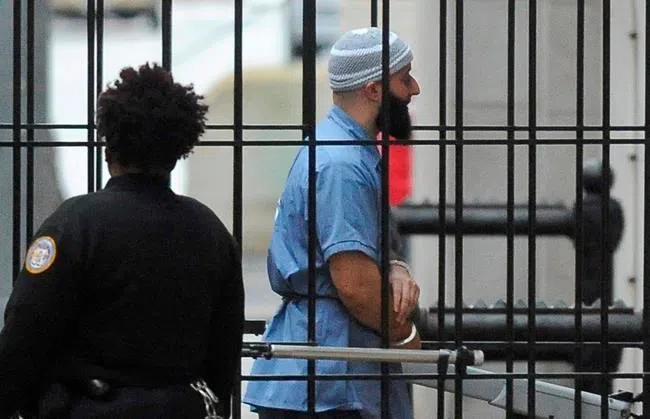
Arguments in “Serial” case focus on lawyer, alibi witness
ANNAPOLIS, Md. — Roughly two years after a new trial was ordered, Maryland’s highest court on Thursday heard arguments in their review of the high-profile case of a man whose murder conviction was chronicled in the hit “Serial” podcast that attracted millions of armchair detectives.
Tasked with upholding the retrial order for Adnan Syed or reviewing a decision that could reinstate a conviction, Maryland’s Court of Appeals heard about an hour’s worth of arguments in the long-running case. Syed was convicted in 2000 of strangling his high school sweetheart and burying her body in a Baltimore park. He’s been serving a life sentence ever since.
But a Baltimore judge vacated his conviction two years ago and a court ordered a new trial after concluding that his trial lawyer was ineffective. The state appealed. Earlier this year, the special appeals court upheld the lower court’s ruling. The state appealed that decision, too.
On Thursday, state prosecutor Thiru Vignarajah acknowledged that the late trial lawyer for Syed did not contact an alibi witness but he asserts that the attorney understood the “gist” of what that witness, Asia McClain, might have told her at the time. The attorney in question, Cristina Gutierrez, died of a heart attack in 2004, about four years after Syed was convicted of murdering 18-year-old Hae Min Lee.
